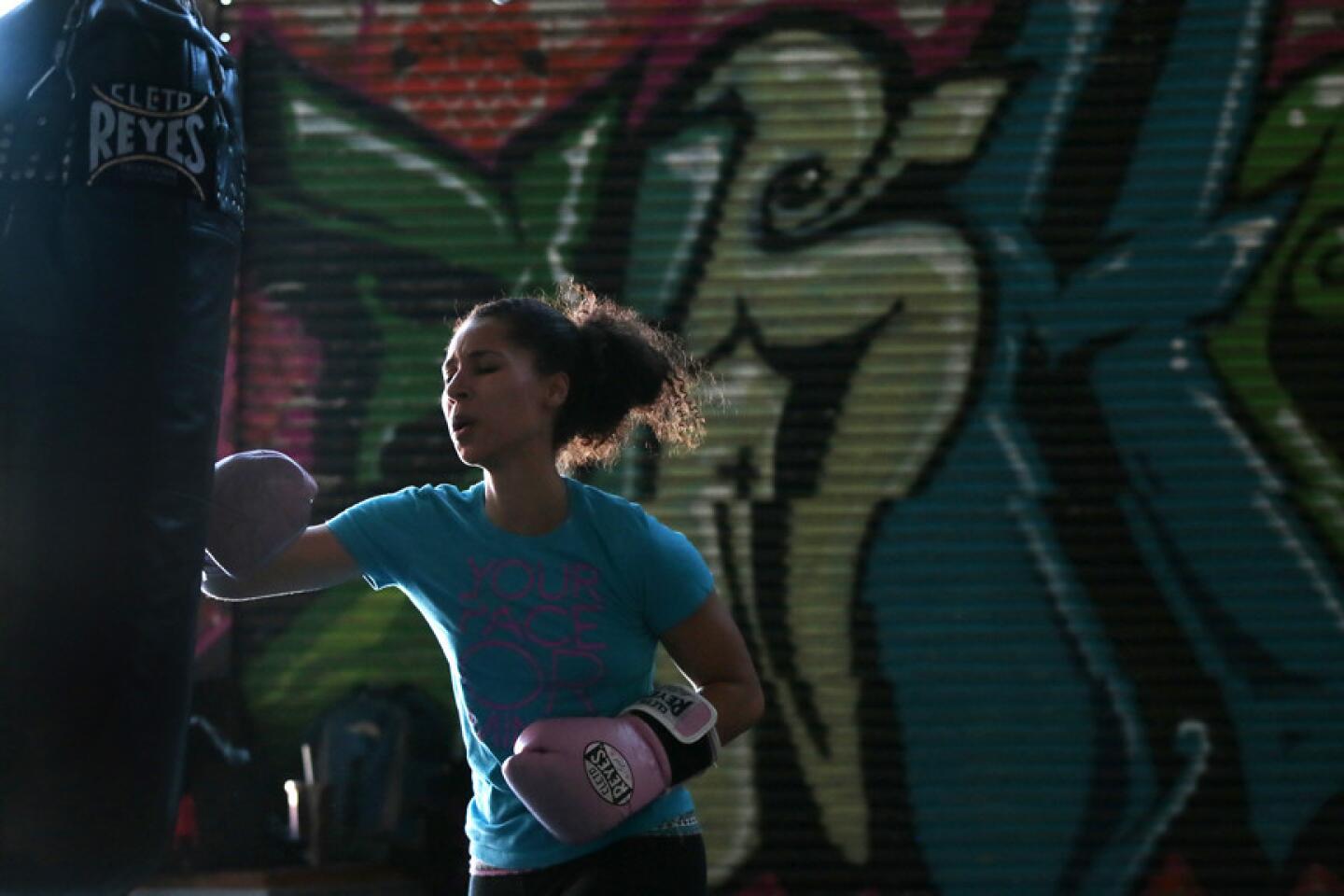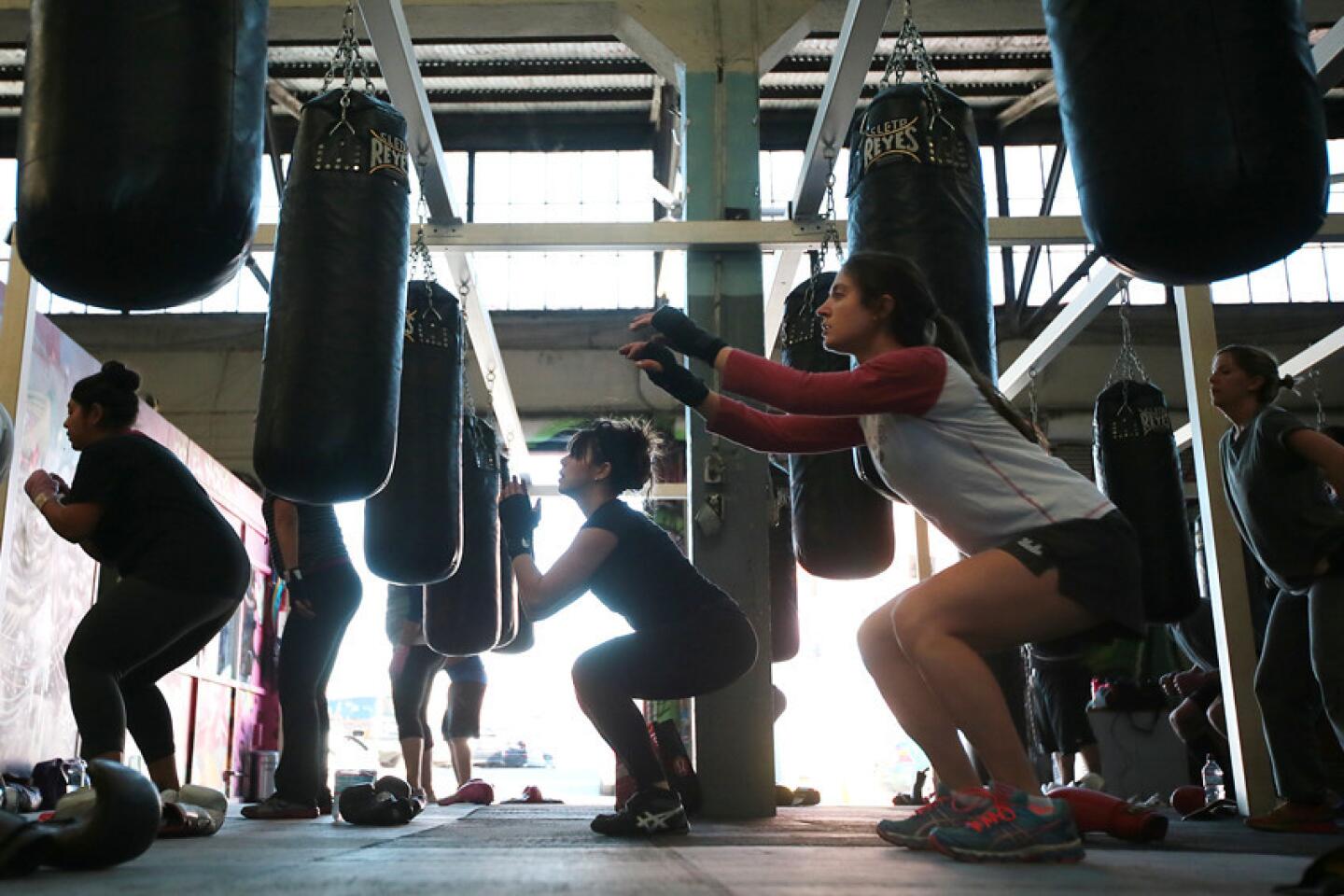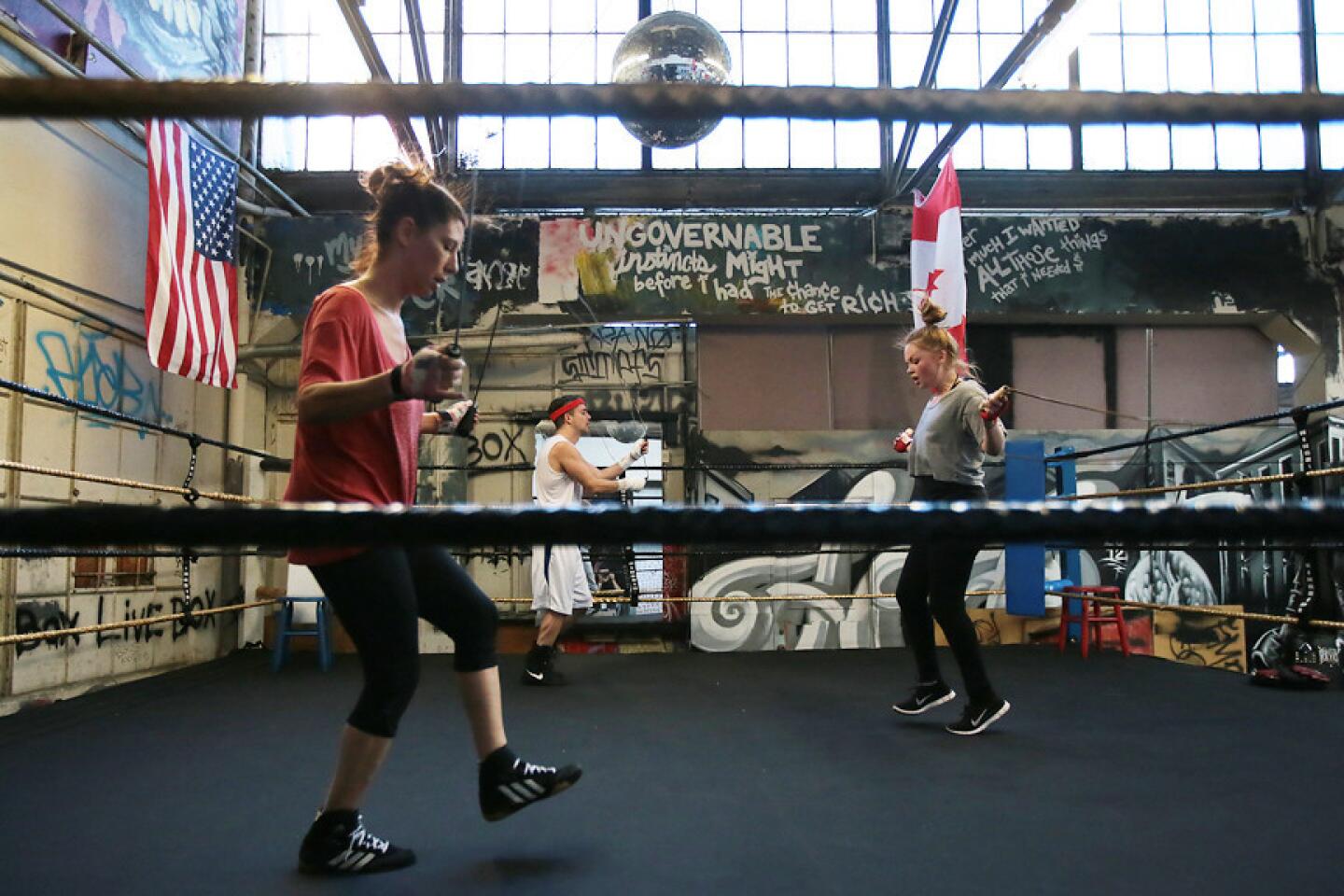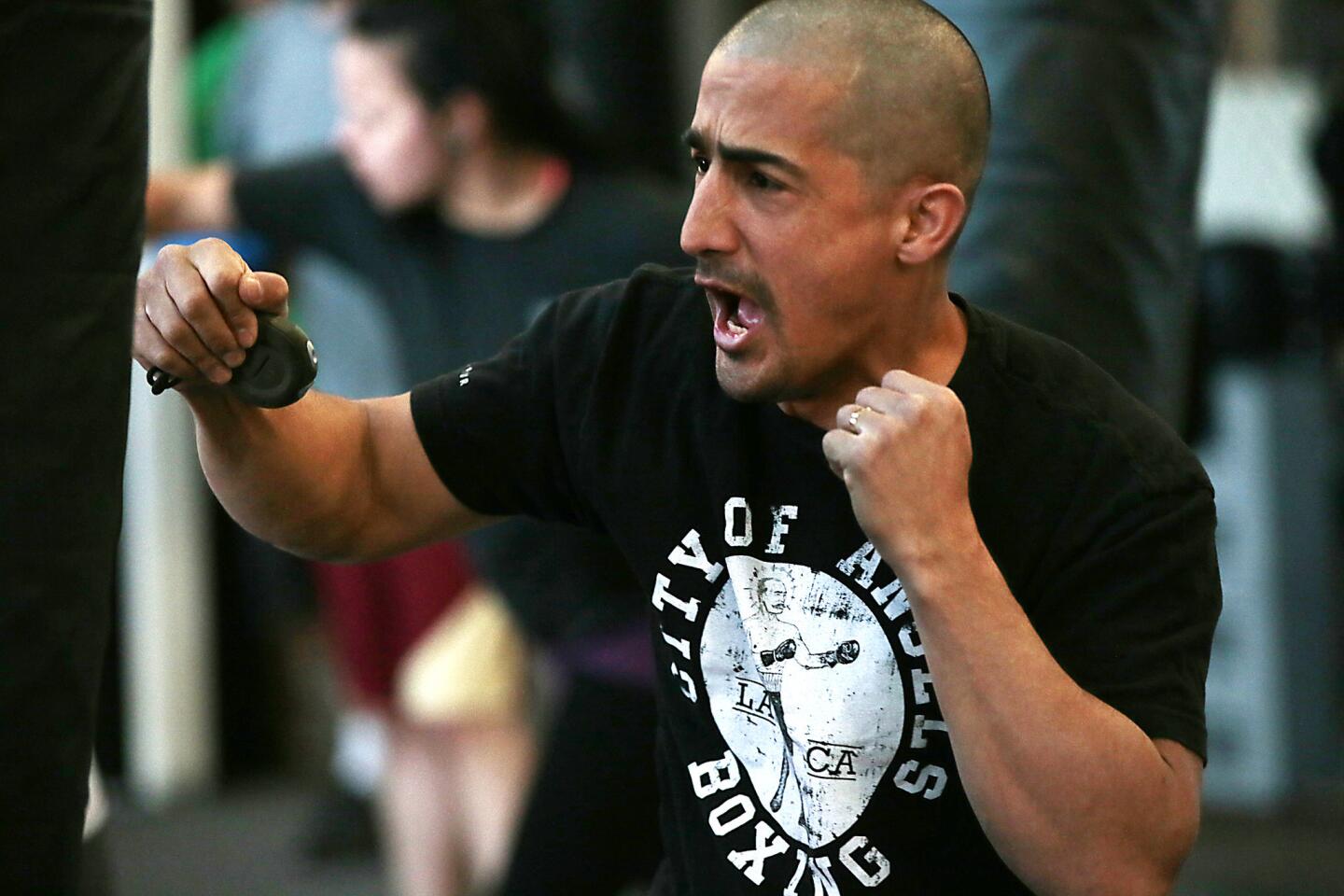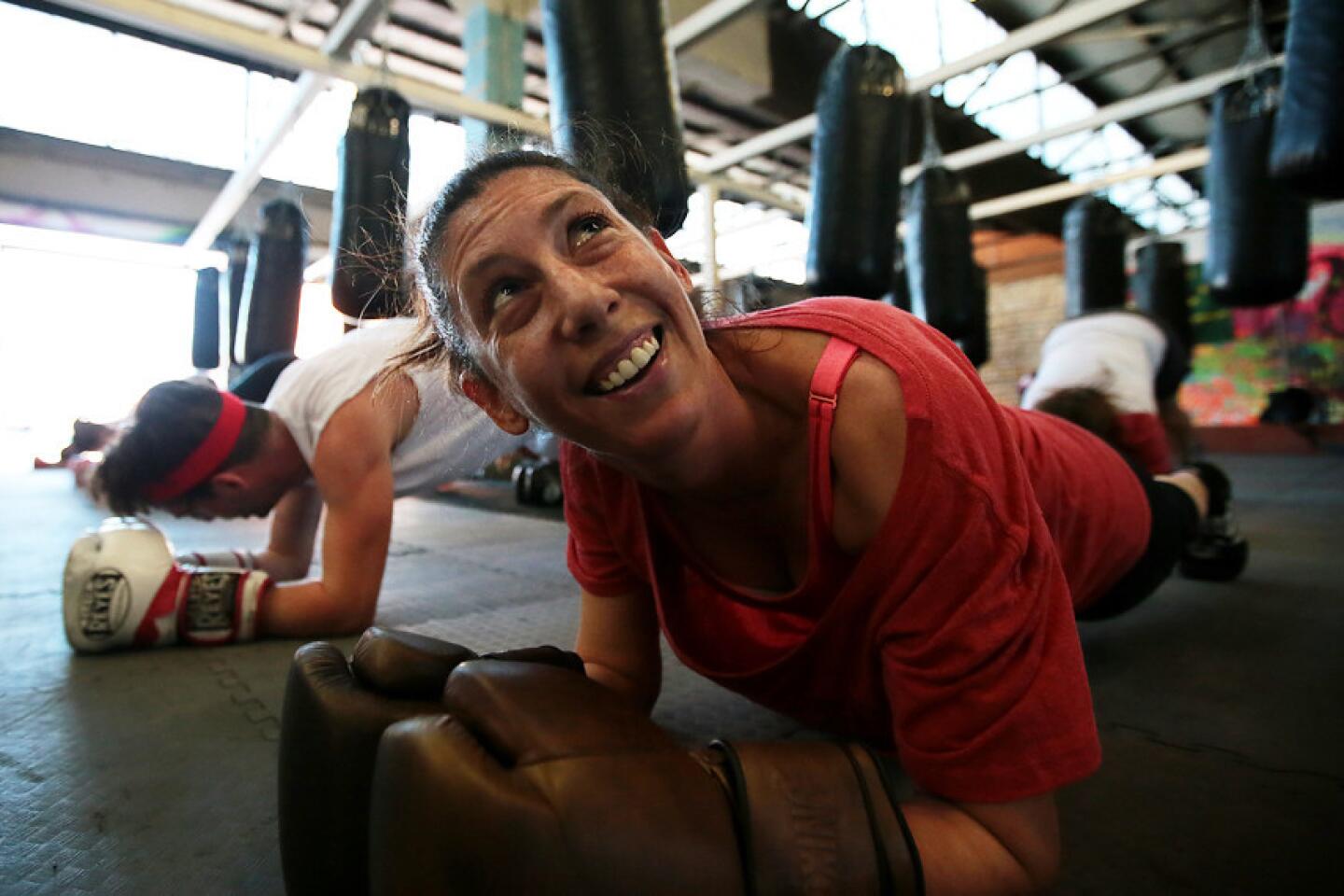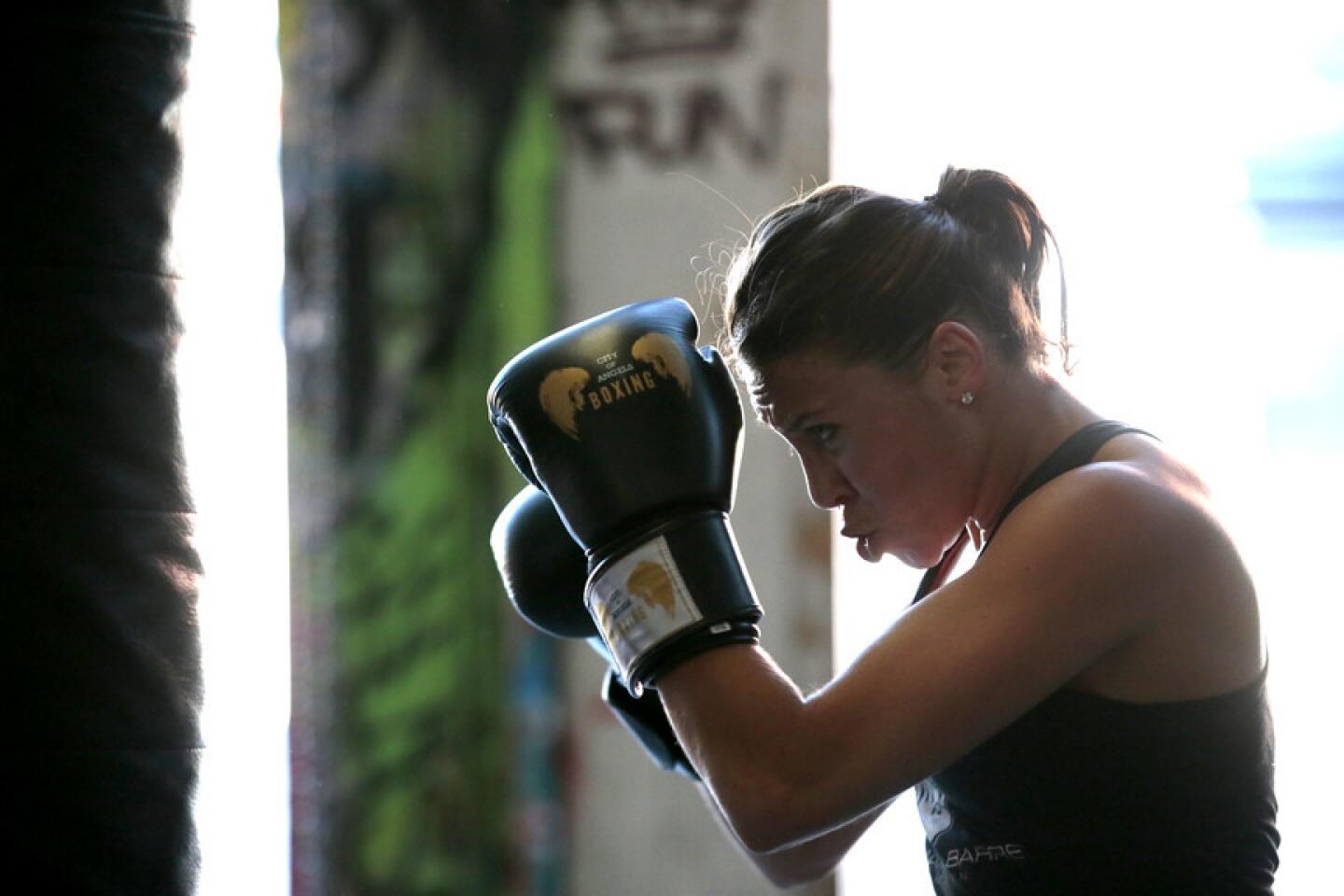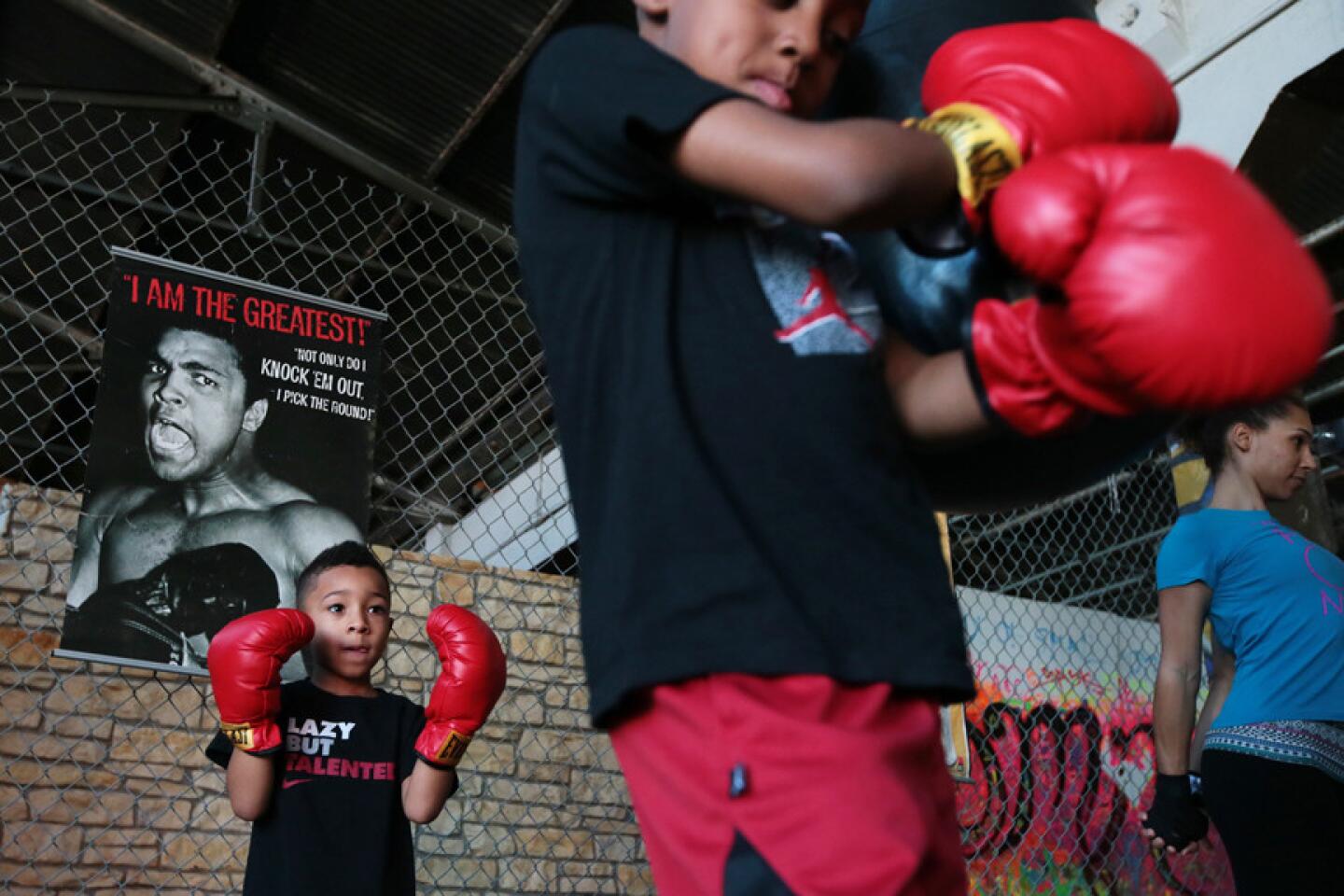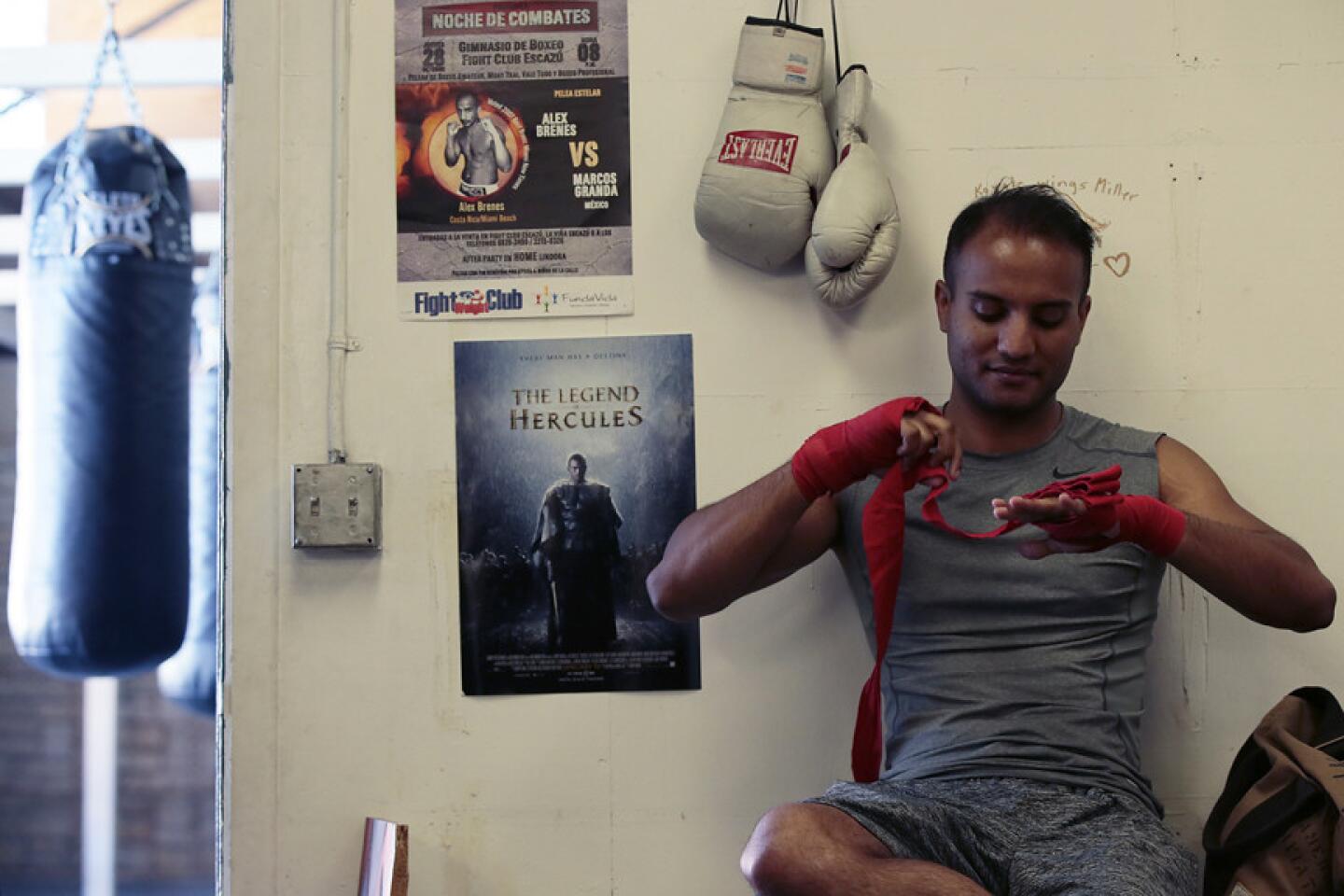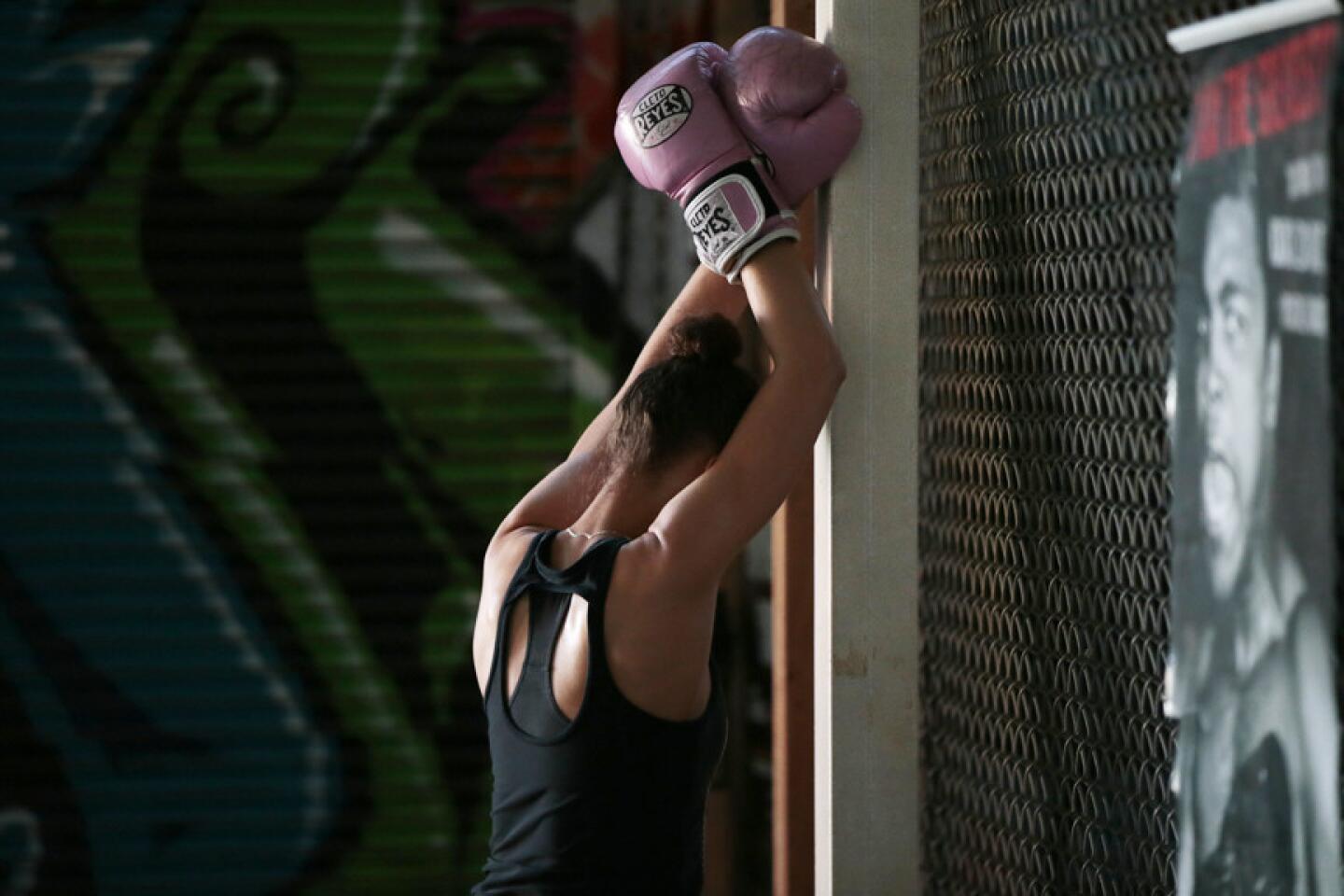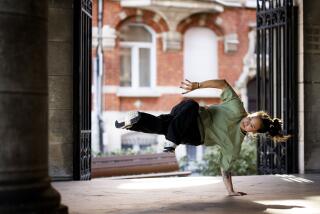Want to work the whole body? Knock yourself out with boxing lessons
Lindsay Heller is punching her way around a boxing ring in a small gym in Hollywood. The 36-year-old mother of two is in the middle of a lesson; Juan Manuel Jiminez, a veteran trainer who goes by the nickname Superman, is coaching her.
“Look at my chest,” he says, as Heller bounces lightly on her feet. “Never lose sight of your opponent.”
Heller has been taking classes at Wild Card Boxing Club for five months. Turned on to the idea by a friend, she was looking for a workout that would exhaust her.
“I’m very active,” she says, “and I was looking for something that would just waste me. I can exercise a lot and not get tired, but boxing does it.”
Among a growing number of people who are taking up boxing not to get in the ring and fight but to improve their cardiovascular health, Heller is looking to tone her muscles with a workout that’s challenging, constantly changing and requires the use of the mind in addition to the body.
“I love it,” she says. “It’s my favorite part of the week.”
Changing it up
Boxing, says U.S. Olympic boxing bronze medalist Marlen Esparza, keeps things interesting by constantly presenting new challenges as students are taught how to move and fight.
“Boxing is completely different than any other sport,” she says. “It’s always something new — you can never be perfect at it, you can never adjust completely and you can never get tired of it.”
Alexander Brenes, the owner of City of Angels Boxing in Los Angeles, adds that, unlike repetitive cardiovascular workouts, in boxing, students are training like professionals. “I train everybody as a fighter. It doesn’t matter what you want to get out of it. The best results come when I have day-to-day people looking like real boxers.”
Esparza, who recently released a set of boxing workouts on DVD, adds that the mental component of learning new moves — and learning them properly — keeps students on their toes and engaged. “It keeps you stimulated, and that draws in the physical part. If you don’t put your heart into your workout, you’re not going to get any results.”
A strong body
Of course, it’s not just the mental aspect of boxing that entices newcomers. Many have seen the six-pack abs and the toned legs and arms of the pros, and want to get that body for themselves.
“It tones your entire body,” Esparza says. “People think it’s just upper body, that it will make your upper body really big, but if you do it the right way, you are using your entire body the whole time.”
In fact, she adds, the part of the body that works most is not the upper body at all. “The most important part of your body that you use when boxing is your core. If you don’t have a strong core, you can’t do anything.”
Releasing aggression
For men and women, the notion of feeling powerful by learning how to fight is a big draw of sports like boxing, New York-based sports psychologist Richard Lustberg says.
For women, he says, there’s often a component of being able to take care of themselves. For men, the motivation may be more ego-driven: Having spent their lives being confronted with images of macho men who can handle themselves in a fight, there may be an element of fantasy at play. “There’s perhaps an idealized version of what it might be to be in the ring,” Lustberg says.
Either way, Brenes says, the urge to throw punches is one that tends to come naturally.
“Fighting, like dancing and listening to music, is one of the primal instincts that humans have,” he says. “Anybody has a little bit of a fighter inside them. When they come to the gym and start seeing results and see that they can hit the bag hard and nobody’s judging them, they let all that out.”
To that end, for everyone who straps on a pair of gloves, boxing provides a safe environment to take out the stresses and slights of everyday living.
For people with high-stress jobs, Brenes adds, releasing the tension of a long workday can calm the mind and the body, and positively affect other parts of their lives. “It helps them to relax. You go home and go to sleep with no problem.”
Getting in the ring
While plenty of students come to boxing just to get in shape, Freddie Roach, the owner of Wild Card Boxing Club, notes that over time many find themselves wanting to get in the ring. Students are often paired up with a more experienced fighter for their first few rounds, he says, in order to ensure their safety.
But getting bit by the fighting bug, Brenes says, is part of the way boxing is taught.
“It’s the natural progression of the way we train,” he says. “We train people as real fighters, so after they have gone through the basic form and punches, conditioning, strength and speed, then they go, ‘What’s next?’”
Hit these spots for boxing lessons
Feel like punching something? Here are a few places to try boxing.
Wild Card Boxing Club
1123 Vine St., No. 14, Los Angeles
(323) 461-4170
City of Angels Boxing
1726 N. Spring St., Los Angeles
(323) 630-1974
Tiger Boxing Gym
708 N. Gardner St., Los Angeles
(323) 951-9679
KTown Boxing Club
242 S. Western Ave., Los Angeles
(213) 536-4328
Box N’ Burn Boxing Gym
1654 Lincoln Blvd., Santa Monica
(310) 392-2651
ALSO:
Bill Nye tests the benefits of swing dancing
Intermittent fasting, or IF, gains ground as a dieting tool
Reality check for your fitness resolution from a reality show trainer
More to Read
Go beyond the scoreboard
Get the latest on L.A.'s teams in the daily Sports Report newsletter.
You may occasionally receive promotional content from the Los Angeles Times.

